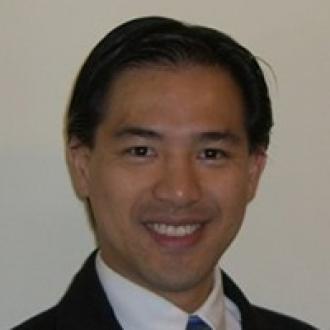- Postgraduate
Software Engineering MSc
Overview
With the IT sector expanding rapidly around the world, there has never been a better time to take a software engineering course. We will help you develop the knowledge and practical skills you need to further your career or research activities.
This course will introduce you to the latest industry standard technologies and provide the opportunity to specialise in topics ranging from software architecture to implementation techniques, building on necessary skills to tackle modern software systems in an industrial context.
Furthermore, you will become familiar with a broad range of current scholarship work in software engineering and learn how to research and review published work.
With these new skills, you will be prepared for a professional career in software systems and lead to rewarding work in the software industry such as software architect, solution architect, project manager, senior software developer etc.
Extended Masters and Enhanced Extended Masters options
If you have an undergraduate degree but do not meet the entry criteria for this course, you may qualify for our Extended Masters or Enhanced Extended Masters courses.
These courses feature four specially designed modules which will improve your academic and English skills. Once completed you can progress directly onto the regular Masters course. See below for more information.

Select your desired study option, then pick a start date to see relevant course information:
Start date:
If your desired start date is not available, try selecting a different study option.
Why study Software Engineering with us?




What our students say…
MSc Software Engineering has provided me with opportunities to gain knowledge and sharpen my skills in the field of information technology. The University facilitated the course with suitable resources and study environment. The academic staff have been very supportive, I have learned a lot and gained valuable experience in particular in conducting research.
The MSc Software Engineering course at UWL is highly advanced and up-to-date. The study modules are designed to provide a comprehensive understanding of software development. Supportive course directors, professors and assistants were always there to help. Through the knowledge gained from the course, my software development expertise was enhanced, and my career opportunities were broadened. The facilities on campus are not only helpful and modern, but they also extend beyond academic resources. UWL provides services such as immigration advice, career guidance, multiple career fairs, and post-study guidance facilities. Three types of libraries serve all students' needs, and the entire campus is equipped with facilities such as high-speed Wi-Fi, advanced labs, and modern classrooms.
The MSc Software Engineering has modules covering emerging technologies which enabled me to add extra skills and stand out in the software engineering job market. Additionally, UWL provided extensive support throughout the course, with experienced lecturers, module assessments and excellent library resources all helping to provide the necessary references and information needed for my course.




Course detail & modules
If you have a background in IT and want to specialise in software engineering, this course will hone your critical research and analysis skills and add to industry-specific knowledge.
It will help you build the skills you need to work with modern software systems in today’s industry and develop a comprehensive understanding of commercial software engineering.
Beyond the core topics, this software engineering degree will allow you to specialise in areas from software project management to implementation techniques.
This course is led by an academic team with extensive research and professional practice directly in software engineering. You will benefit from the industry experience and current research of supportive tutors, and enjoy access to computer labs, our modern library and a range of digital resources.
In the final stages of your course, you will use your enhanced research skills and knowledge to complete an original piece of work. This could be the design and implementation of a complex software application, a literature-focused study or a research-focused empirical study.
Extended Masters and Enhanced Extended Masters
Our Extended Masters and Enhanced Extended Masters courses are intended for students who already have an undergraduate degree but don't meet the entry requirements to study for a Masters degree.
Over a full-time semester, you will study four modules specially designed to improve your academic and English language skills:
- Advanced Study Skills
- Critical Thinking, Analysis and Evaluation
- Statistics
- English (Business English on the Enhanced course)
Once completed, you will progress directly onto the core Masters course.
What's the difference between an Extended Masters and an Enhanced Extended Masters? The Enhanced Extended Masters is similar to the Extended Masters but with a greater focus on improving your English skills. It also includes a Business English module which will allow you to gain a full understanding of this critical subject area.
For more information on our Extended Masters and Enhanced Extended Masters, please visit our Extended Masters courses page.
Internship*
You can also choose to take this course with an eight week internship. This will allow you to gain experience, enhance your existing skills and acquire new ones in a professional work environment. It will also give you an idea of the range of roles in which you could pursue a career.
*As we are in unprecedented and unpredictable times, there is no guarantee that you will be successful in securing a placement in the UK in the future.
If you choose a course with placement/internship route we would like to advise you that if a placement/internship opportunity does not arise when you are expected to undertake the placement then the University will automatically transfer you to the non-internship route. This is to ensure you are still successful in being awarded a degree.
The internship route for this course is open to UK students only .
Supporting modules
- Employability Skills and Employment (for Internship students only)
- Learning and Professional Development (for international students only)
- Programming Support.
Compulsory modules
The Learning and Professional Development module is compulsory for international students.
-
Mobile Web Component Development
During this module you will be introduced to the concepts and techniques required to support component-based development for mobile web. The module will also give you practical experience in modelling component specifications as well as an indication of future developments in this area.
-
Big Data Analytics
Big data is a fast-growing field and skills in the area are some of the most in-demand today. Big data technologies cover a range of architectures, frameworks and algorithms designed to handle very large and often highly complex datasets.
The module will enable you to understand big data, its applications and associated issues for storing, managing, processing and analysing massive amounts of datasets, as well as become familiar with software tools and frameworks underpinning big data analytics.
You will also acquire the knowledge of statistical, mathematical and machine-learning techniques, and develop the ability to design and implement big data analytics modelling and applications to real-world problems.
-
Advanced Topics in Software Engineering
This module aims to provide you with an awareness of tools, techniques and principles used in professional software development and software engineering (SE).
-
Machine Learning
Machine learning is an application of artificial intelligence that provides systems with the ability to automatically learn and improve from experience without being explicitly programmed.
This module familiarises you with some basic machine learning algorithms and techniques and their applications, as well as general questions related to analysing and handling large data sets. Several software libraries and data sets publicly available will be used to illustrate the application of these algorithms. The emphasis will be thus on machine learning algorithms and applications, with some broad explanation of the underlying principles.
-
Research Methods
-
Dissertation
With this module, you have the opportunity to carry out an original piece of research, adding to existing knowledge and demonstrating an ability to select, define and focus on a software engineering topic at an appropriate level. You will also develop and apply relevant methodologies to analyse your topic areas, and to develop recommendations and logical conclusions in the context of existing work in the area.
Optional modules
-
HCI for Information Systems
On this module you will focus on user-centred design (UCD) principles and frameworks. You will cover various techniques involving users, and upon completion you will appreciate the way UCD and prototyping techniques are used within the general practice of software engineering.
-
Security Operations and Assurance
This module will introduce you to security operations and assurance of systems, networks, data and user identities, which is an essential aspect of organisation and information systems.
Entry requirements
You should have an honours degree (2:2 or above) from a UK university or equivalent in computing, or engineering with a significant level of computing. We may also offer you a place based on relevant experience or training, normally from within the work environment. All applications are considered individually.
Find out more about our processes for recognising previous experience
Extended Masters Degree
To study the Extended Masters programme you will need:
- a Bachelor's degree
- international students need to meet our English language requirements of IELTS 6.5 or above and a minimum of 5.5 for each of the individual components (Reading, Writing, Speaking and Listening).
Enhanced Extended Masters Degree
To study the Enhanced Extended Masters programme you will need:
- a Bachelor's degree
- international students must meet our English language requirements at IELTS 6.0 or above, and a minimum of 5.5 for each of the individual components (Reading, Writing, Speaking and Listening).
Please note: If you qualify for a regular Masters, you will not be accepted on the Extended Masters or Enhanced Extended Masters course.
You need to meet our English language requirement of 6.5 overall score for IELTS, with a minimum of 5.5 for each of the 4 individual components (Reading, Writing, Speaking and Listening). Visit our English language requirements page for information on other English language tests we accept.
You also need academic qualifications at the same level as UK applicants. In some countries where teaching is in English, we may accept local qualifications. Check for local equivalents.
We offer pre-sessional English language courses if you do not meet these requirements. Find out more about our English Language courses.
Extended Masters Degree
To study the Extended Masters programme you will need:
- a Bachelor's degree
- international students need to meet our English language requirements of IELTS 6.5 or above and a minimum of 5.5 for each of the individual components (Reading, Writing, Speaking and Listening).
Enhanced Extended Masters Degree
To study the Enhanced Extended Masters programme you will need:
- a Bachelor's degree
- international students must meet our English language requirements at IELTS 6.0 or above, and a minimum of 5.5 for each of the individual components (Reading, Writing, Speaking and Listening).
Please note: If you qualify for a regular Masters, you will not be accepted on the Extended Masters or Enhanced Extended Masters course.
Fees & funding
You will need to pay the fee above for each academic year of your course. Payment is due at the start of each year.
If you have chosen to study for an 'Extended Masters', or an internship option, the cost above is for your full course and you will need to pay the full fee upfront.
Government regulation does affect your fees, so what you pay may go up in future. For example, government regulation around future inflation may increase your course fees.
If no fee is shown above then the fees for this course are not available yet. Please check again later for updates.
Funding your studies
If you are studying a Masters course you may be eligible to apply for a Postgraduate Loan, this may help contribute towards your course fees and living costs.
Additional funding is available to some types of students, such as disabled students or those with dependants.
We offer a range of scholarships and bursaries, including awards for specific subjects.
Awards for computing and engineering students are also on offer.
You will need to pay the fee above for each academic year of your course. Payment is due at the start of each year.
If you have chosen to study for an 'Extended Masters', or an internship option, the cost above is for your full course and you will need to pay the full fee upfront.
Government regulation does affect your fees, so what you pay may go up in future. For example, government regulation around future inflation may increase your course fees.
If no fee is shown above then the fees for this course are not available yet. Please check again later for updates.
International students - funding your studies
We offer scholarships for international students including International Ambassador Scholarships.
Further information about funding and financial support for international students is available from the UK Council for International Student Affairs.
Teaching staff

Dr Fateme Dinmohammadi
Dr Fateme Dinmohammadi is a Senior Lecturer in AI & Robotics and acts as a Course Director of MSc Software Engineering at the School of Computing and Engineering, University of West London (UWL). Prior to joining UWL, she held several research positions, including: Senior Researcher in AI and Real-Time Analytics at the University College London (UCL), Senior Research Fellow in AI in Engineering at Cranfield University, and Research Fellow in AI & Robotics at Edinburgh Robotic Centre, Heriot Watt University. Her research expertise are: AI and Machine Learning, Robotics, Predictive Analytics, Real-Time Analytics and Sensors. So far, she has contributed to several research projects funded by EPSRC, InnovateUK, H2020 and Industries. Her research outcomes have been published in more than 50 articles and international conferences.
Dr Fateme Dinmohammadi is a Senior Lecturer in AI & Robotics and acts as a Course Director of MSc Software Engineering at the School of Computing and Engineering, University of West London (UWL). Prior to joining UWL, she held several research positions, including: Senior Researcher in AI and Real-Time Analytics at the University College London (UCL), Senior Research Fellow in AI in Engineering at Cranfield University, and Research Fellow in AI & Robotics at Edinburgh Robotic Centre, Heriot Watt University. Her research expertise are: AI and Machine Learning, Robotics, Predictive Analytics, Real-Time Analytics and Sensors. So far, she has contributed to several research projects funded by EPSRC, InnovateUK, H2020 and Industries. Her research outcomes have been published in more than 50 articles and international conferences.
Study & career progression

My experience at the University of West London has been exceptional.
Priyank Dakhani
The course has an emphasis on currency and relevance to current and future employment and should appeal to new and recent graduates who wish to further their careers in software engineering.
Once you graduate you could go on to work as a:
- software architect
- solution architect
- project manager
- solution architect
- software project manager
- systems analyst
- senior software developer.
You may want to further your knowledge in a specific area through doctoral study. If you do have an interest in research, please let us know early on in your course.
How to apply

You can apply online at any time by following the link below.
Our application form will ask you for some information about:
- what you want to study
- your previous qualifications or experience
- your references
- how we can contact you.
Want to ask us a question first? We would love to hear from you. Contact us free on:
- 0800 036 8888
- courses@uwl.ac.uk
Apply for this course
Next steps after making your application
We aim to make a decision on your application as quickly as we can. If we need any more information about your qualifications, we will be in touch.
In the meantime, come and visit us and find out more about what studying at UWL is like. Sign up for an open day or join a campus tour.
Visit us and see for yourself
Talk to our tutors and find out about our courses and facilities at our next open day or join a campus tour.
We're here to help
Any questions about a course or studying at UWL? We're here to help - call us on 0800 036 8888 (option 2, Monday – Friday 10am-4pm) or email us on courses@uwl.ac.uk.
Our postgraduate prospectus
All of our courses in one place - download now or order a hard copy.

You can apply online at any time by following the link below.
Our application form will ask you for some information about:
- what you want to study
- your previous qualifications or experience
- your references
- how we can contact you.
Want to ask us a question first? We would love to hear from you. Contact us free on:
- 0800 036 8888
- courses@uwl.ac.uk
Apply for this course
Next steps after making your application
We aim to make a decision on your application as quickly as we can. If we need any more information about your qualifications, we will be in touch.
In the meantime, come and visit us and find out more about what studying at UWL is like. Sign up for an open day or join a campus tour.
Visit us and see for yourself
Talk to our tutors and find out about our courses and facilities at our next open day or join a campus tour.
We're here to help
Any questions about a course or studying at UWL? We're here to help - call us on 0800 036 8888 (option 2, Monday – Friday 10am-4pm) or email us on courses@uwl.ac.uk.
Our postgraduate prospectus
All of our courses in one place - download now or order a hard copy.

You can apply online at any time by following the link below.
Our application form will ask you for some information about:
- what you want to study
- your previous qualifications or experience
- your references
- how we can contact you.
Want to ask us a question first? We would love to hear from you. Contact us free on:
- 0800 036 8888
- courses@uwl.ac.uk
Apply for this course
Next steps after making your application
We aim to make a decision on your application as quickly as we can. If we need any more information about your qualifications, we will be in touch.
In the meantime, come and visit us and find out more about what studying at UWL is like. Sign up for an open day or join a campus tour.
Visit us and see for yourself
Talk to our tutors and find out about our courses and facilities at our next open day or join a campus tour.
We're here to help
Any questions about a course or studying at UWL? We're here to help - call us on 0800 036 8888 (option 2, Monday – Friday 10am-4pm) or email us on courses@uwl.ac.uk.
Our postgraduate prospectus
All of our courses in one place - download now or order a hard copy.

You can apply online at any time by following the link below.
Our application form will ask you for some information about:
- what you want to study
- your previous qualifications or experience
- your references
- how we can contact you.
Want to ask us a question first? We would love to hear from you. Contact us free on:
- 0800 036 8888
- courses@uwl.ac.uk
Apply for this course
Next steps after making your application
We aim to make a decision on your application as quickly as we can. If we need any more information about your qualifications, we will be in touch.
In the meantime, come and visit us and find out more about what studying at UWL is like. Sign up for an open day or join a campus tour.
Visit us and see for yourself
Talk to our tutors and find out about our courses and facilities at our next open day or join a campus tour.
We're here to help
Any questions about a course or studying at UWL? We're here to help - call us on 0800 036 8888 (option 2, Monday – Friday 10am-4pm) or email us on courses@uwl.ac.uk.
Our postgraduate prospectus
All of our courses in one place - download now or order a hard copy.

You can apply online at any time by following the link below.
Our application form will ask you for some information about:
- what you want to study
- your previous qualifications or experience
- your references
- how we can contact you.
Want to ask us a question first? We would love to hear from you. Contact us free on:
- 0800 036 8888
- courses@uwl.ac.uk
Apply for this course
Next steps after making your application
We aim to make a decision on your application as quickly as we can. If we need any more information about your qualifications, we will be in touch.
In the meantime, come and visit us and find out more about what studying at UWL is like. Sign up for an open day or join a campus tour.
Visit us and see for yourself
Talk to our tutors and find out about our courses and facilities at our next open day or join a campus tour.
We're here to help
Any questions about a course or studying at UWL? We're here to help - call us on 0800 036 8888 (option 2, Monday – Friday 10am-4pm) or email us on courses@uwl.ac.uk.
Our postgraduate prospectus
All of our courses in one place - download now or order a hard copy.

You can apply online at any time by following the link below.
Our application form will ask you for some information about:
- what you want to study
- your previous qualifications or experience
- your references
- how we can contact you.
Want to ask us a question first? We would love to hear from you. Contact us free on:
- 0800 036 8888
- courses@uwl.ac.uk
Apply for this course
Next steps after making your application
We aim to make a decision on your application as quickly as we can. If we need any more information about your qualifications, we will be in touch.
In the meantime, come and visit us and find out more about what studying at UWL is like. Sign up for an open day or join a campus tour.
Visit us and see for yourself
Talk to our tutors and find out about our courses and facilities at our next open day or join a campus tour.
We're here to help
Any questions about a course or studying at UWL? We're here to help - call us on 0800 036 8888 (option 2, Monday – Friday 10am-4pm) or email us on courses@uwl.ac.uk.
Our postgraduate prospectus
All of our courses in one place - download now or order a hard copy.

You can apply online at any time by following the link below.
Our application form will ask you for some information about:
- what you want to study
- your previous qualifications or experience
- your references
- how we can contact you.
Want to ask us a question first? We would love to hear from you. Contact us free on:
- 0800 036 8888
- courses@uwl.ac.uk
Apply for this course
Next steps after making your application
We aim to make a decision on your application as quickly as we can. If we need any more information about your qualifications, we will be in touch.
In the meantime, come and visit us and find out more about what studying at UWL is like. Sign up for an open day or join a campus tour.
Visit us and see for yourself
Talk to our tutors and find out about our courses and facilities at our next open day or join a campus tour.
We're here to help
Any questions about a course or studying at UWL? We're here to help - call us on 0800 036 8888 (option 2, Monday – Friday 10am-4pm) or email us on courses@uwl.ac.uk.
Our postgraduate prospectus
All of our courses in one place - download now or order a hard copy.

You can apply online at any time by following the link below.
Our application form will ask you for some information about:
- what you want to study
- your previous qualifications or experience
- your references
- how we can contact you.
Want to ask us a question first? We would love to hear from you. Contact us free on:
- 0800 036 8888
- courses@uwl.ac.uk
Apply for this course
Next steps after making your application
We aim to make a decision on your application as quickly as we can. If we need any more information about your qualifications, we will be in touch.
In the meantime, come and visit us and find out more about what studying at UWL is like. Sign up for an open day or join a campus tour.
Visit us and see for yourself
Talk to our tutors and find out about our courses and facilities at our next open day or join a campus tour.
We're here to help
Any questions about a course or studying at UWL? We're here to help - call us on 0800 036 8888 (option 2, Monday – Friday 10am-4pm) or email us on courses@uwl.ac.uk.
Our postgraduate prospectus
All of our courses in one place - download now or order a hard copy.

You can apply online at any time by following the link below.
Our application form will ask you for some information about:
- what you want to study
- your previous qualifications or experience
- your references
- how we can contact you.
Want to ask us a question first? We would love to hear from you. Contact us free on:
- 0800 036 8888
- courses@uwl.ac.uk
Apply for this course
Next steps after making your application
We aim to make a decision on your application as quickly as we can. If we need any more information about your qualifications, we will be in touch.
In the meantime, come and visit us and find out more about what studying at UWL is like. Sign up for an open day or join a campus tour.
Visit us and see for yourself
Talk to our tutors and find out about our courses and facilities at our next open day or join a campus tour.
We're here to help
Any questions about a course or studying at UWL? We're here to help - call us on 0800 036 8888 (option 2, Monday – Friday 10am-4pm) or email us on courses@uwl.ac.uk.
Our postgraduate prospectus
All of our courses in one place - download now or order a hard copy.

You can apply online at any time by following the link below.
Our application form will ask you for some information about:
- what you want to study
- your previous qualifications or experience
- your references
- your visa (if required)
- how we can contact you.
Want to ask us a question first? Our dedicated international students’ team would love to hear from you.
- email international@uwl.ac.uk to submit a question
Apply for this course
Next steps after making your application
We aim to make a decision on your application as quickly as we can. If we need any more information about your qualifications, we will be in touch.
In the meantime, come and visit us and find out more about what studying at UWL is like. Sign up for an open day or join a campus tour.
Visit us and see for yourself
Talk to our tutors and find out about our courses and facilities at our next open day or join a campus tour.
We're here to help
Any questions about a course or studying at UWL? We're here to help - call us on 0800 036 8888 (option 2, Monday – Friday 10am-4pm) or email us on courses@uwl.ac.uk.
Our postgraduate prospectus
All of our courses in one place - download now or order a hard copy.

You can apply online at any time by following the link below.
Our application form will ask you for some information about:
- what you want to study
- your previous qualifications or experience
- your references
- your visa (if required)
- how we can contact you.
Want to ask us a question first? Our dedicated international students’ team would love to hear from you.
- email international@uwl.ac.uk to submit a question
Apply for this course
Next steps after making your application
We aim to make a decision on your application as quickly as we can. If we need any more information about your qualifications, we will be in touch.
In the meantime, come and visit us and find out more about what studying at UWL is like. Sign up for an open day or join a campus tour.
Visit us and see for yourself
Talk to our tutors and find out about our courses and facilities at our next open day or join a campus tour.
We're here to help
Any questions about a course or studying at UWL? We're here to help - call us on 0800 036 8888 (option 2, Monday – Friday 10am-4pm) or email us on courses@uwl.ac.uk.
Our postgraduate prospectus
All of our courses in one place - download now or order a hard copy.

You can apply online at any time by following the link below.
Our application form will ask you for some information about:
- what you want to study
- your previous qualifications or experience
- your references
- your visa (if required)
- how we can contact you.
Want to ask us a question first? Our dedicated international students’ team would love to hear from you.
- email international@uwl.ac.uk to submit a question
Apply for this course
Next steps after making your application
We aim to make a decision on your application as quickly as we can. If we need any more information about your qualifications, we will be in touch.
In the meantime, come and visit us and find out more about what studying at UWL is like. Sign up for an open day or join a campus tour.
Visit us and see for yourself
Talk to our tutors and find out about our courses and facilities at our next open day or join a campus tour.
We're here to help
Any questions about a course or studying at UWL? We're here to help - call us on 0800 036 8888 (option 2, Monday – Friday 10am-4pm) or email us on courses@uwl.ac.uk.
Our postgraduate prospectus
All of our courses in one place - download now or order a hard copy.

You can apply online at any time by following the link below.
Our application form will ask you for some information about:
- what you want to study
- your previous qualifications or experience
- your references
- your visa (if required)
- how we can contact you.
Want to ask us a question first? Our dedicated international students’ team would love to hear from you.
- email international@uwl.ac.uk to submit a question
Apply for this course
Next steps after making your application
We aim to make a decision on your application as quickly as we can. If we need any more information about your qualifications, we will be in touch.
In the meantime, come and visit us and find out more about what studying at UWL is like. Sign up for an open day or join a campus tour.
Visit us and see for yourself
Talk to our tutors and find out about our courses and facilities at our next open day or join a campus tour.
We're here to help
Any questions about a course or studying at UWL? We're here to help - call us on 0800 036 8888 (option 2, Monday – Friday 10am-4pm) or email us on courses@uwl.ac.uk.
Our postgraduate prospectus
All of our courses in one place - download now or order a hard copy.

You can apply online at any time by following the link below.
Our application form will ask you for some information about:
- what you want to study
- your previous qualifications or experience
- your references
- your visa (if required)
- how we can contact you.
Want to ask us a question first? Our dedicated international students’ team would love to hear from you.
- email international@uwl.ac.uk to submit a question
Apply for this course
Next steps after making your application
We aim to make a decision on your application as quickly as we can. If we need any more information about your qualifications, we will be in touch.
In the meantime, come and visit us and find out more about what studying at UWL is like. Sign up for an open day or join a campus tour.
Visit us and see for yourself
Talk to our tutors and find out about our courses and facilities at our next open day or join a campus tour.
We're here to help
Any questions about a course or studying at UWL? We're here to help - call us on 0800 036 8888 (option 2, Monday – Friday 10am-4pm) or email us on courses@uwl.ac.uk.
Our postgraduate prospectus
All of our courses in one place - download now or order a hard copy.

You can apply online at any time by following the link below.
Our application form will ask you for some information about:
- what you want to study
- your previous qualifications or experience
- your references
- your visa (if required)
- how we can contact you.
Want to ask us a question first? Our dedicated international students’ team would love to hear from you.
- email international@uwl.ac.uk to submit a question
Apply for this course
Next steps after making your application
We aim to make a decision on your application as quickly as we can. If we need any more information about your qualifications, we will be in touch.
In the meantime, come and visit us and find out more about what studying at UWL is like. Sign up for an open day or join a campus tour.
Visit us and see for yourself
Talk to our tutors and find out about our courses and facilities at our next open day or join a campus tour.
We're here to help
Any questions about a course or studying at UWL? We're here to help - call us on 0800 036 8888 (option 2, Monday – Friday 10am-4pm) or email us on courses@uwl.ac.uk.
Our postgraduate prospectus
All of our courses in one place - download now or order a hard copy.

You can apply online at any time by following the link below.
Our application form will ask you for some information about:
- what you want to study
- your previous qualifications or experience
- your references
- your visa (if required)
- how we can contact you.
Want to ask us a question first? Our dedicated international students’ team would love to hear from you.
- email international@uwl.ac.uk to submit a question
Apply for this course
Next steps after making your application
We aim to make a decision on your application as quickly as we can. If we need any more information about your qualifications, we will be in touch.
In the meantime, come and visit us and find out more about what studying at UWL is like. Sign up for an open day or join a campus tour.
Visit us and see for yourself
Talk to our tutors and find out about our courses and facilities at our next open day or join a campus tour.
We're here to help
Any questions about a course or studying at UWL? We're here to help - call us on 0800 036 8888 (option 2, Monday – Friday 10am-4pm) or email us on courses@uwl.ac.uk.
Our postgraduate prospectus
All of our courses in one place - download now or order a hard copy.
Search for courses
News
UWL holds immersive inaugural Esports and Games Festival
The festival united a community of gamers, students and esports professionals in one space, providing a platform for networking and celebrating gaming culture.

Dr Livia Lantini participates in Royal Academy of Engineering Frontiers Symposium
The Frontiers Programme connects and empowers enthusiastic researchers, innovators and practitioners from around the world to work together on new ways to solve complex global challenges.

Business, computing and engineering students get employment advice at Careers Fair
UWL’s Placement and Employment Services Team hosted a Business, Computing and Engineering Careers Fair on Tuesday 8 October to support students and graduates from the Claude Littner Business School (CLBS) and School of Computing and Engineering (SCE). Almost 500 students and graduates connected with 28 employers.

Student life at UWL
Important notes for applicants
Disclaimer
*Modern universities - defined as higher education institutions that were granted university status in, and subsequent to, 1992.
**The National Student Survey 2023 and 2024 - Average of answers to all questions by registered student population. Excludes specialist institutions.
Testimonials - our students or former students provided all of our testimonials - often a student from the course but sometimes another student. For example, the testimonial often comes from another UWL student when the course is new.
Optional modules - where optional modules are offered they will run subject to staff availability and viable student numbers opting to take the module.
Videos - all videos on our course pages were accurate at the time of filming. In some cases a new Course Leader has joined the University since the video was filmed.
Availability of placements - if you choose a course with placement/internship route we would like to advise you that if a placement/internship opportunity does not arise when you are expected to undertake the placement then the University will automatically transfer you to the non-internship route, this is to ensure you are still successful in being awarded a degree.











